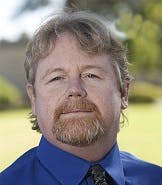Take back your dental team huddle
Dental team morning huddles can be super productive ... or not. How can the dentist or office manager make sure that huddles actually accomplish what they need to? Here are a few simple tips to get on the right track.
Team huddles—you either love them or hate them. At some practices, the huddle is the most productive part of the day, and it works amazingly well at getting everyone on the same page. That means it’s easier to focus on patient care. But at other offices, huddles can feel unfocused, complaint-ridden, or like a gossip-fest that’s hard for dentists or managers to control.
If your practice’s huddles fall into one of the less productive categories, know that you’re not alone. Since your team and the routines you follow are unique, what works well at one office might not work for yours. But if you’d like to rehabilitate a dysfunctional huddle, or if you just need a few small tweaks to make your meetings better, here are some easy-to-institute tips.
RELATED ARTICLES:No huddle equals less dental case conversions
The a.m. huddle -- dentistry's secret weapon for success!
10 tips to make the morning huddle in your dental practice rock
Establish (or reestablish) your goals
First, determine the overall goals of your huddle. Good questions to ask yourself might include:
• What could we go over in our team huddle that would free up more time later in the day?
• What can our huddle do to make my employees’ day a little easier? What about my day?
• What are the benefits of our huddle, and what are the consequences of not doing it?
• What did I want my last huddle to accomplish that it didn’t, and why did it fail?
These steps will help you determine what goals your huddle should accomplish. The next step is to figure out how the huddle will accomplish them.
Organize your huddle
Now that you’ve set some clear goals, establish your agenda. Without one, your huddle is basically a car without a steering wheel. First, decide how long your huddle should last. Ten to 15 minutes is the usual sweet spot. A shorter huddle might not accomplish everything needed, and if it goes much longer, employees may lose focus and start discussing viral videos instead.
With a timeframe in mind, make your agenda by determining the most important tasks your huddle needs to accomplish. The specifics will vary depending on your practice’s needs, but productive team huddles often include:
• A brief discussion about how the previous day went for you and your employees
• A clear statement of the current day’s goals
• A chance for you and your team to discuss what you need from each other to accomplish these goals. This is also a good time to address team concerns.
Once your agenda is set, you’re ready for action. However, since even the best laid plans of mice and dental offices go awry, you will need more than a solid agenda to keep things moving forward.
Keep your huddle on-point
Being a good leader sometimes calls for a light managerial touch. But if you give an inch to off-topic discussions in the huddle, they will take a mile! It takes effort to keep these meetings brief, productive, and aligned with your goals.
Watch out for these common pitfalls:
• Too many tangents— Correct this by tabling off-topic discussion until a later time. Or offer to discuss important concerns individually.
• Distractions that hinder your ability to take charge—Correct this by preventing the distraction in the first place. For example, rather than taking your own notes, have another employee take them for you and provide you with a copy later.
• Shy or quiet employees not participating, or outgoing employees domineering the agenda— Correct this by directly asking quiet employees for feedback, and reminding everyone to be respectful when others are talking.
If your meeting encounters any of these roadblocks, correct it firmly and promptly. Your employees will see you care about the meeting agenda, and they will behave accordingly.
End with something fun
Since successful team huddles can require more micromanagement than usual, your team might appreciate ending on a light note. This could be something like a daily inspirational quote, asking each employee to name something they learned the prior day, or even a daily joke or pun. Your team feeling uplifted and cheerful at the end of the meeting will help set the tone for the rest of the day.
As you can see, a lean and mean 15-minute huddle doesn’t happen by accident—it takes planning and oversight. Maybe your practice’s situation won’t allow for a team huddle, or a huddle doesn’t work well for you, and that’s fine. But if you’re interested in the team-building and productivity boost huddles can offer, it’s never too late to get your huddle back on track.

